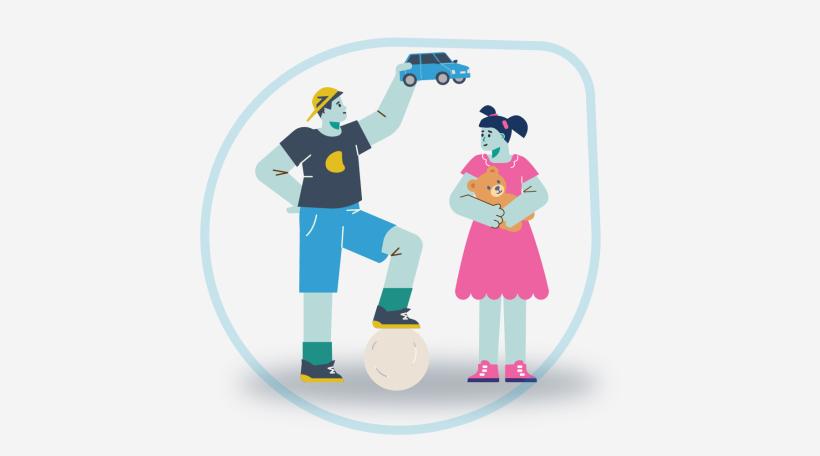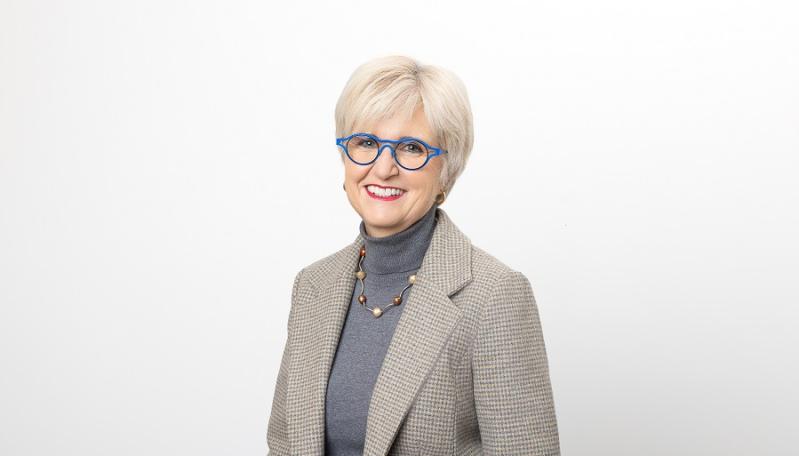EIGE's Director Carlien Scheele delivered this speech a side event of the 65th session of the Commission on the Status of Women on 17 March 2021. The event was organised by the Portuguese Presidency of the Council of the European Union, the European Commission and the European Women’s Lobby.
I want to start with a mental exercise. Let’s imagine the entire populations of Denmark and Latvia are working for free. 7.7 million people working full-time to power the national economy, but without being noted in the governments’ balance sheets.
It doesn’t sound right, does it?
Well this was the situation in the EU before the pandemic, with 7.7 million women unable to take up paid work because they were taking care of children and ageing parents.
Although this unpaid care work doesn’t show up in governments’ balance sheets, it has value to the economy. Children are future taxpayers and older people would be looked after by the state if not by their families.
Globally, the value of unpaid care work has been estimated at around 9 trillion euros each year.
I wanted to start with this mental exercise to show that women and men didn’t enter this crisis on an equal footing, and that women are therefore facing more stumbling blocks on the road to recovery.
We are already seeing larger shares of women than men leaving the labour market completely. Out of people who were unemployed in the first quarter of 2020, on average 40 % of women stopped looking for a job in the second quarter of 2020, compared with 33 % of men. These figures are much higher than in 2019.
Just as 7.7 million women were kept out of the labour market before the crisis because they were busy working for free, so too are they now leaving the labour market partly due to unpaid care responsibilities.
During the pandemic, women have been doing an average of 35.7 hours of unpaid care work a week. That’s almost 2,000 hours a year, which is more or less what you give to a full-time job over the course of a year.
This can, of course, make it difficult to find time for paid work -- as was the case for 7.7 million women before the pandemic. It can also eat into the time reserved for paid work, with many juggling care responsibilities alongside jobs.
To make the recovery fair, we need to make unpaid care work visible. We cannot keep relying on the free labour of women to power this invisible part of our economy.
We need to make care count.
First, we need a change in the home. During the pandemic, men took on more of the care load than usual, which is a good sign. To make sure this positive change stays, countries should earmark healthy amounts of parental leave for all fathers.
Second, people must have access to affordable, professional care services. Europe is ageing, so the need for these will only get bigger.
Last, caring needs to stop being a professional and financial sacrifice for those providing care. To do this, countries could make part-time and temporary work, which are types of work frequently used by carers, more secure through proper eligibility for social security.
Unless we recognise the value of care in our recoveries, I fear we will be here at the Commission on the Status of Women in five years’ time, lamenting the fact that 10 or 15 million women are blocked from paid work because they are working for free.
Let’s hope it doesn’t get to that. It’s a good thing that EU Member States will have to show how their economic recovery plans serve gender equality when applying to access the EU’s money for recovery. It’s a small win for gender equality that will require a moment for thought before we take action. A moment for assessment.
A moment, I hope, to see the invisible economy, and recognise its value.
Thank you.





